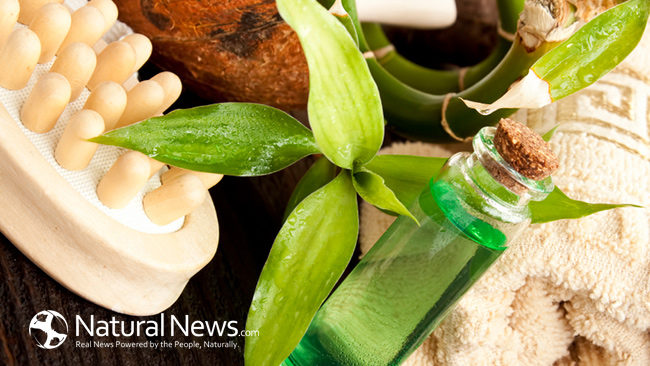Millions of people use essential oils for a variety of purposes and aromatherapy has become a multi-million dollar business. In fact, one large MLM company is worth upwards of 300 million dollars. Obviously, there’s lots of information swirling around about these products…some truth and some myth.
5 Myths About Essential Oils
Here’s 5 common myths that even the most dedicated users may not know.
Myth #1: There are NO therapeutic grade standards that qualify essential oils.
You hear quite often that there are no therapeutic grade standards when it comes to all the different oils developed by various companies.
In truth, there are therapeutic grade standards…just many of them. The problem is, which one can be trusted?
Dr. Robert Pappas, President/Technical Director at Essential Oil University, explains, “It’s important for people to realize that all of these standards are INTERNAL standards developed by the company themselves and may or may not include quality control by a third party lab.”
He goes on to assert that, “I think a better response instead of just saying “there’s no such thing” would be to say that “while many companies promote their own therapeutic grade standard, one should be aware that there is no independent body that certifies essential oils as therapeutic grade.”
So, in fact, there are plenty of therapeutic grade standards…just not one governing body that certifies essential oils. It’s basically a branding issue for companies.
Myth #2: Companies that label their oils “not for internal consumption” probably produce inferior products.
The truth is, smaller companies that sell essential oils cannot afford the high liability insurance costs that would allow them to label their products for ingestion…even though they may actually have better products than their larger competitors. They just can’t afford the extra insurance for the labeling.
That’s not to say that big essential oils companies don’t have good products, just that they’re able to insure themselves against law suits. They have huge marketing budgets for displaying their products in the best light.
Myth #3: The Wise men brought baby Jesus Frankincense oil as a gift.
Uh, no.
Even though it’s true that aromatic oil has a long history that dates back to Bible times, aromatic substances used in Jesus’ day were not the same as modern essential oils. The International Organization for Standardization (ISO) Vocabulary of Natural Materials, defines essential oils as: “a product made by distillation with either water or steam or by mechanical processing of citrus rinds or by dry distillation of natural materials. Following the distillation, the essential oil is physically separated from the water phase.”
Herbal medicine was definitely used in Bible times, but not essential oils…too early for that invention.
So, according to Amy Kreydin, Clinically-trained Aromatherapist, “The wise men didn’t bring Jesus steam-distilled Frankincense oil, they brought the resin which has different therapeutic properties to it in this classification of herbs.”
Myth #4: Essential oils are natural and don’t cause allergic reactions.
Sorry, they can.
In fact, some people have serious reactions to certain oils…this writer is one. After all, logic dictates that those who have allergies to certain products of nature such as pollens and fragrances, only to name a few, could conceivably be allergic to some natural essential oils.
According to Kristen Warren of the Live Oak Acupuncture & Wellness Center in Woodway, TX, “Anyone who tells you that you cannot be allergic to essential oils or that when skin irritation arises in response to the use of essential oils (for example hives, rashes, itching, etc.) it means that your body is “detoxing” and that you need to continue to use oils is misinformed.”
Even though using good quality essential oils have significant health benefits and are generally safe when used with common precautions, some people can develop or already have a hyper sensitivity to certain oils.
Myth #5: Pure essential oils without additives last indefinitely.
Nope, this is just unscientific.
Dr. Pappas points out that, “There is no question that most oils, pure or otherwise, will eventually go bad due to oxidation reactions that are unavoidable unless you could somehow store them in an oxygen free atmosphere (basically impossible for most people).
Even if stored in an inert atmosphere, there is still the possibility of some EO molecules reacting with themselves over long periods, changing the oil, many times for the worse.” To suggest that pure oils just don’t break down over time doesn’t align with chemistry basics.
Pointing out these common myths associated with the use of essential oils in no way lessens the positive health and home benefits that they can provide. So, when it comes to using essential oils for yourself and your family…just be safe and use common sense.
For more information, see 3 Essential Oils for Your Medicine Cabinet. Also, visit us at WiselyGreen.com for more Toxic Free, Natural and Green Living information, community and personal help. Follow us on Facebook.
References:





